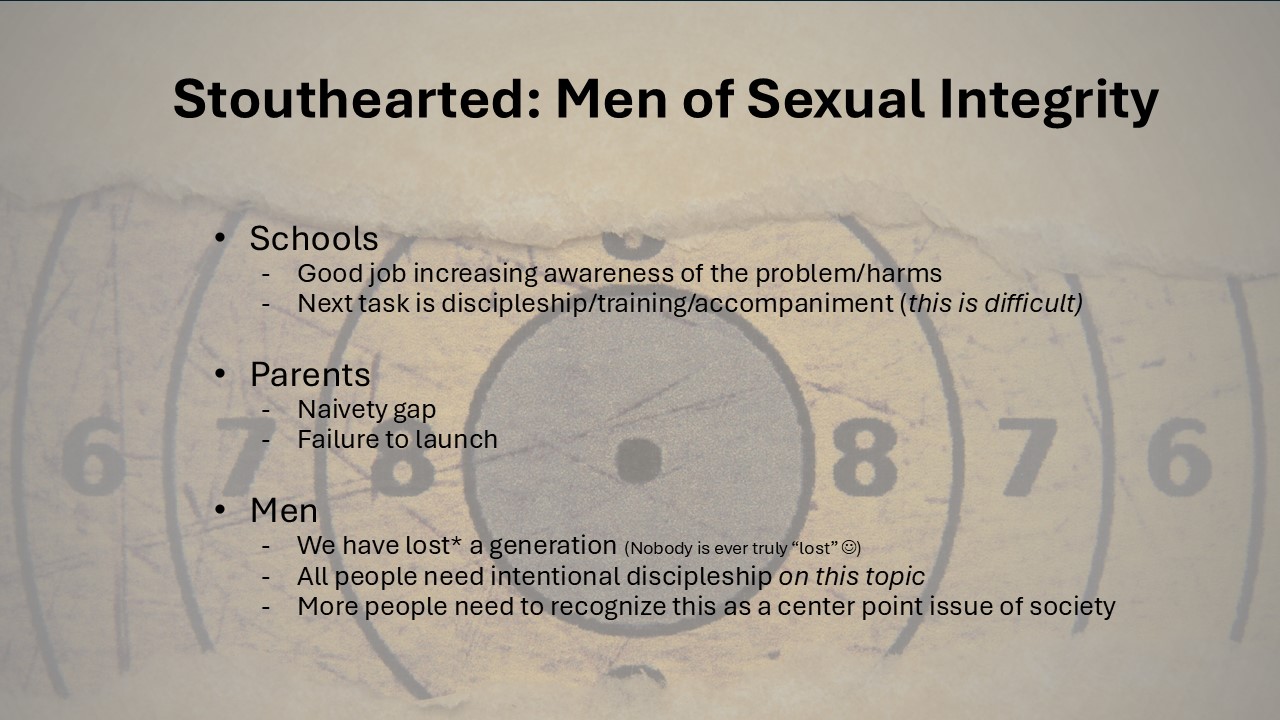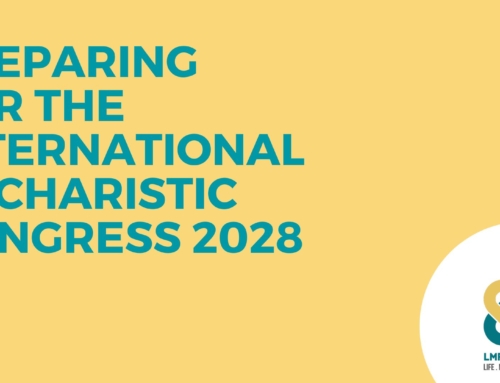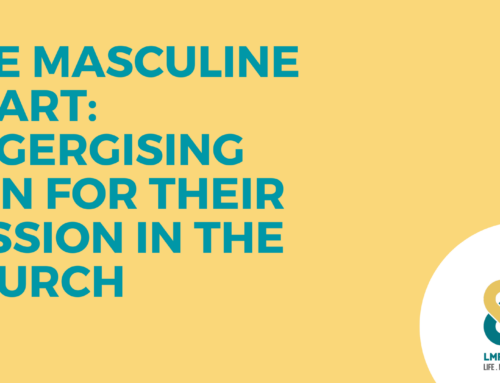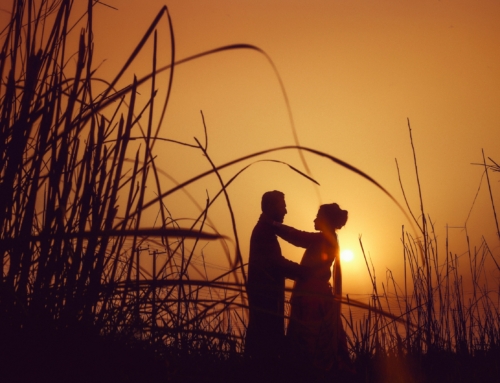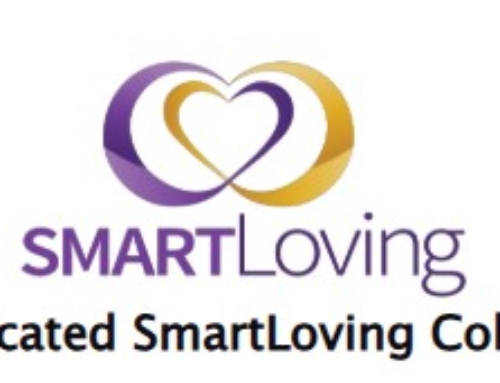
Paul Ninnes
Biography
Paul is the co-founder and Managing Director of Real Talk. Real Talk is Australia’s largest relationships and sexuality educator working with hundreds of schools each year. Paul is husband and father of six and a sought-after speaker who has spoken to over 100,000 people in live audiences. Paul is a pioneering leader who has a wealth of experience and a powerful life story that continues to bring a much-needed life-changing message on human dignity, sex, and relationships.
Porn impacts us all. But young men are at the epicenter of this battle! This talk will address the key methods and mechanism of this cancerous curriculum and how it is impacting children, youth and young adults. Furthermore, it will outline a roadmap for education, prevention, recovery and healing for young people and those who care for them. Be prepared for a talk that is real, vulnerable and challenging, and yet filled with hope.
Transcript
I want to talk about the topics of schools, parents and then men.
I was asked to touch on these topics because this is the area that I work the most. I run an organization called Real Talk, which is Australia’s biggest relationship educator. This year we’ll do 700 speaking events in Christian, predominantly Catholic schools around Australia. But we’re about so much more than that. If I had to say anything about the school’s ministry the first thing I want to say is overall within the Catholic sector we’re doing a good job of getting the message out that pornography is harmful, and so many of you in the room have been committed to this.
SCHOOLS
In the last 10 years I’ve seen a dramatic change. Most schools we go to, the students and the staff know that porn is harmful but that can’t be said for every school.
So overall on that basic notion of spreading the message that porn exists and it’s harmful, we’re doing pretty well. However, there’s so much more to it than that and that’s where it gets difficult.
Most students get that porn is harmful. When I’m speaking to an audience of teenage male students and I ask them ‘is porn affecting your behaviours with others’? About 98% would say yes.
Whereas, when I started it was 50/50. To give you a snapshot, I was at a city school not that long ago with 300 year 10 boys. During one of the reflection times these two boys who were behaviourally challenging for most of the time, pulled me aside. They weren’t religious or into their faith. One of them said ‘look you know that whole sexual dysfunction thing can you tell me more about how I can reverse that?’.
Then the other one pulled me aside and said ‘I get what you’re saying about how I shouldn’t objectify my girlfriend, that I should see her as more than that, but I just don’t know. How can I?’
The territory beyond the simple message that “Porn is a problem” is vast. What I’m proposing is we need discipleship, accompaniment, and training for these young men and schools just aren’t equipped for that and aren’t funded. You know that school group I was talking about – if everyone disclosed everything they did online, there’d be 200 different pastoral care cases that the school would have to follow up, quite frankly, and they’re just not ready for that. So, schools don’t really want to address to topic on an individual personal basis, and it’s probably not their place. They can do so much more though.
PARENTS
We talk to parent groups and provide resources such as our parents membership site.
Firstly there’s a big naivety gap that still exists. A gap between what parents think and what students or young people are doing. Whether it be their exposure to porn, or their level of addiction, or habit, there’s just still quite a significant gap. The eSafety commission did some research on this, on all sorts of things including pornography and something we can do for parents is try to reduce that gap.
I’m talking to all of you who are parents, it doesn’t matter how Catholic or churched you are. I spoke to a Catholic event one day and this Mum came up to me and she said “wow I can testify to what you just said. I have seven boys, and I never thought they would have a problem with porn and all seven of them are now addicted to porn.” They were a homeschooled family who just didn’t contemplate the issue. So, there’s a huge naivety gap maybe more so with parents of faith.
“Failure to launch” is the other slogan to leave you with. Parents just need to talk about this. I love the Chesterton quote, that says: “If it’s worth doing, it’s worth doing poorly.” In other words, he’s saying any conversation about an important topic is better than no conversation.
What most parents are doing? Nothing! Even good Catholic Christian parents, they’re doing nothing because they’re scared, they don’t know what to say, they’ve got their own shame, they’re worried that they might introduce the topic too early.
To this, I just encourage you to say anything. Honestly, if there’s one tip for parents to take away – say anything. If you don’t know what to say, say anything. Other specific tips I would include that parents need to have the first conversation about pornography before your child has access to the internet. So, for most kids that’s preschool age.
Now you don’t have to use the word porn, you just have to talk about the fact that you will see things online that are not good for you, that are perhaps people’s private parts. You can group it together. It might be violent things, it might be things that make you feel yucky, and you’re not a bad person and you’re not in trouble. An yo need to give some guidance on what to do whenever you see that.
This should be done before they have access to the internet. There needs to be conversations that provides the scaffolding for young people so they know what to do when it happens.
Other age markers for important conversations? I would say before you go into high school, or before you have your first personal device, would be the next landmark to try to have a proper conversation. Preferably after the birds and the bee’s conversation. I needs to be a conversation that’s very real about pornography.
Someone in the room reminded me that I gave them this advice, when your kids hit Year 7 they are entering the swamp. They’re now entering a swamp where everyone else does have it, so you’ve got to have a conversation, getting very specific before then. Talk early, talk often.
MEN
The main reason why I really wanted to talk today was to try to focus in on the topic of men, and the topic of young men.
If you’re a female in the room you may be feeling missed right now. I think a lot of the speakers have concentrated on men and I just want you to know that I see you, and we need to keep saying that to women, but I am focusing on men because I do think it is the centre point of the struggle and it’s an area that I work with more specifically.
We have lost a generation. I’m not going to comment more on that. Quite frankly if you’re in the 25 – 35ish age group you are a generation of men that had no training given, no skills, no discipleship, and they you have been part of simply a great porn experiment.
Like Jonathan Haidt says in The Anxious Generation, you know, “we did it to them” so let’s not blame them. The advice that we often hear, particularly from visiting chastity speakers to our country, is if you’ve got a porn problem don’t get married until you deal with it. That’s good advice but what that means for the young women out there looking for a husband in the Church is that 90% of the women in our pews can’t get married. The point is, that there’s a lot of people in that age demographic that have never spoken about their problem, but have a life limiting issue.
I recall speaking to a youth ministry organisation leader one time and asking, “Do you talk to the young men who are your leaders about porn?” The answer was “not really”, and I said, “well, you’ve got to, some of them will struggle with porn” and he responded by saying, “Paul they all struggle with porn”.
So, all people need intentional discipleship on this topic and discipleship is very different than education. It involves education but it involves accompaniment, and it involves accountability, and it involves fraternity, community, it involves revisioning concepts of sexuality, it involves an intentionality that doesn’t come with simple education. So, it’s really important that we start discipling men sexually. We don’t just need to get the message out, we don’t just need to teach people, but we need to walk with them, and disciple them with intentionality. Because at the moment our young men are dealing with live ammo. They’ve done no training, and they’re out there it’s live training, and they are losing limbs to this giant of a topic. It is the greatest super stimuli we’ve ever seen, and it has taken out a generation. Let’s help the next generation before it is too late.
So, I love speaking about David and Goliath it’s going to be the logo for the forthcoming program. I love speaking about it because my understanding of the David and Goliath story is all wrong. This was not an underdog story, a story of faith and luck, which is kind of how I perceived it. Historians would tell us David was not the underdog. Scripture would tell us he’d been killing bears and wild animals protecting his flock. When he took on David he was a slinger, he wasn’t up for that hand to hand combat that King Saul thought he was going to do. He was experienced, he was equipped, and he was trained. For years, probably over a decade, he had been training for this fight against goliath. So when he took on a giant, the historians would tell us, it would be equivalent to a person taking on a disabled person, with the equivalent of a of a small calibre handgun.
Who are you going to bet on. A dude with a handgun? Or a blind (he was probably vision impaired) giant with a sword. That doesn’t mean faith is not part of the story, but it was faith and training, that allowed him to take on the giant.
We need to train our young men, all people, to learn how to pick up their weapons because they’re stepping out into a world where there is this massive giant that is taking people out and you don’t just step out there with a sling and get it right the first time.
There’s a process of discipleship that we all need, and I think in my mind the reason why I put a target on the screen here is that men are the centre point.
Men in particular, the young men, are very much, the centre point of this and I wasn’t sure if I was going to share this quote but since it seems like everyone is quoted from John Paul II I better jump on the bandwagon. I just discovered that this quote is actually from his time in Australia “as goes the family, so goes the nation, so goes the whole world in which we live.” I propose that if you want to drill down even further… as goes the family, as goes the men, so goes the family, so goes society, so goes the whole world.
If you want to drill down even further as goes sexual Integrity, so goes the family, and even further as goes people who struggle with pornography, in this current age, so goes the family, so goes society, so goes the whole world.
We’re going to do something and I’m passionate about doing it. I’ve created this program as my offering to the world on this topic because we need to help men because at the moment, they’ve got no guides, they’re experiencing this corrosive curriculum, this toxic training from internet porn, and they’ve got no one to guide them on how to take down this giant.
So, I’ll finish with another quote. This one’s from CS Lewis, “in a sort of ghastly simplicity, we remove the organ and demand the function. We make men without chests and expect of them virtue and enterprise, we laugh at honor and we’re shocked to find traitors in our midst. We castrate and bid the geldings be fruitful.”
We need to equip our young men, stop disempowering them, and train them for the fight that they’re currently in.
Three main points from this talk:
The Role of Schools and Education: Schools are increasingly recognizing the harmful effects of pornography, but they often lack the resources and training to provide adequate support for students. While many students understand that porn is detrimental, there is a significant need for discipleship and mentorship that goes beyond simply educating about the issue. Schools should be equipped to handle the complexities of this topic, and there’s a call for more structured programs that can guide young men through these challenges.
The Naivety Gap Among Parents: Many parents remain unaware of their children’s exposure to pornography and the potential impacts. There’s a crucial need for open conversations about these topics. Parents should start discussions about pornography early, ideally before their children have access to the internet. Encouraging parents to communicate—even if imperfectly—is essential to bridge the gap between their perceptions and their children’s realities.
Empowering Young Men Through Discipleship: The focus on young men is critical, as many have not received the training or support necessary to navigate the challenges posed by pornography and sexual integrity. There’s a call for intentional discipleship that includes education, accountability, and community support. This approach aims to equip young men with the tools and understanding needed to resist harmful influences and cultivate healthy relationships, emphasizing that this effort is essential for the well-being of families and society as a whole. Find out more at Stouthearted or www.paulninnes.com


